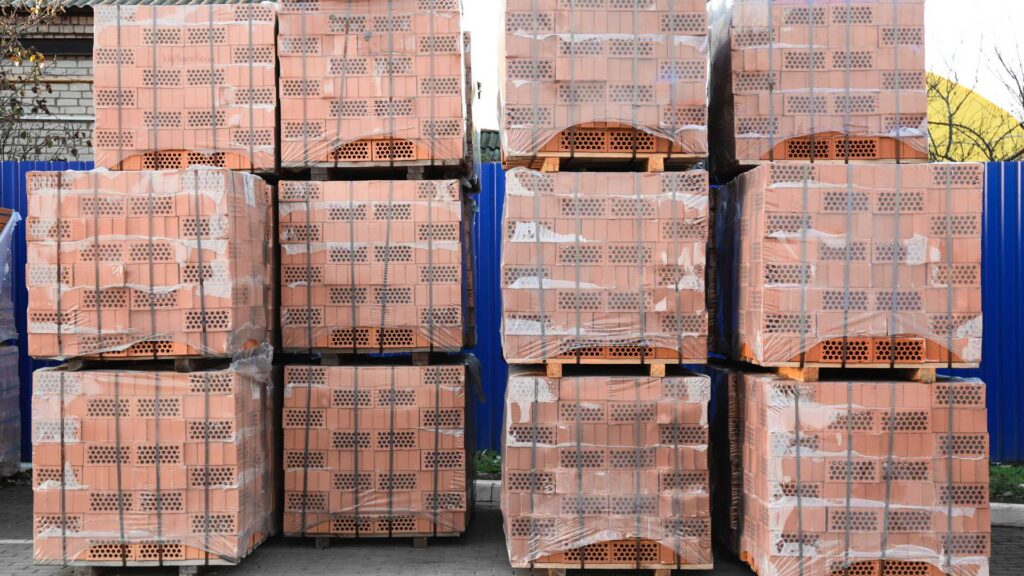India is a country that offers a huge market with diverse opportunities to entrepreneurs where they can establish and grow their brands or businesses.
A trading business involves purchasing an ideal range of products from suppliers and manufacturers, maintaining an inventory, and then reselling them either directly to customers or retailers.
In this blog, we will dwell on 15 trading business ideas in India and describe what each business is about along with the requirements to establish it, and the initial investment required in detail.
List Of Traditional Trading Business Ideas
1. Wholesale

Starting a wholesale business involves buying products in large quantities from manufacturers and selling them to retailers. This business model can yield significant profits due to the volume of sales.
Requirements to Establish The Idea:
- Initial investment required: ₹3-8 lakhs
- Find Suppliers: Establish relationships with manufacturers or suppliers.
- Secure Storage: Get a warehouse for storing bulk products.
- Build a Sales Network: Develop a network of retailers to purchase your products.
- Set Competitive Prices: Offer competitive pricing to attract more retailers.
2. Import and Export

Starting an import and export business can be highly profitable. This involves purchasing goods from other countries and selling them locally, or exporting local products abroad. You can deal in various items like electronics, clothing, machinery, and more. The key to success is understanding regulations and finding trustworthy suppliers and buyers.
Requirements to Establish The Idea:
- Initial investment required: ₹5-10 lakhs
- Identify Products: Research and select in-demand products.
- Understand Regulations: Learn about import/export laws, tariffs, and necessary documentation.
- Manage Logistics: Partner with shipping companies for efficient logistics.
- Market Your Products: Promote your goods to potential buyers.
3. Fabric Trading

Fabric trading involves buying and selling various types of fabrics. India’s rich textile industry makes this a promising business.
Requirements to Establish The Idea:
- Initial investment required: ₹3-10 lakhs for procuring initial inventory, storage facilities, and marketing efforts.
- Find Fabrics: Source fabrics from manufacturers or weavers.
- Set Up a Showroom: Create a showroom or use online platforms to showcase fabrics.
- Build a Client Base: Establish relationships with garment manufacturers, designers, and retailers.
- Offer Quality and Competitive Pricing: Ensure your fabrics are high-quality and priced competitively.
4. Retail

A retail business involves selling products directly to consumers through a physical store or an online shop. You can sell a wide range of products such as clothing, electronics, groceries, etc.
Requirements to Establish The Idea:
- Initial investment required: ₹10-20 lakhs for store setup, inventory procurement, and operational expenses.
- Choose a Location: Pick a prime location for your store or set up an online store.
- Stock Inventory: Keep products in stock based on market demand.
- Focus on Customer Service: Provide excellent customer service to build loyalty.
- Promote Your Store: Use marketing strategies to attract customers.
5. Food Enterprise
Starting a food enterprise can be very profitable, especially in India with its diverse food culture. You can focus on organic food, fast food, packaged snacks, or specialty cuisines.
Requirements to Establish The Idea:
- Initial investment required: ₹5-15 lakhs for sourcing inventory, packaging materials, and initial marketing efforts.
- Choose a Niche: Select a niche like organic, gourmet, or fast food.
- Source Ingredients: Partner with farmers or suppliers for raw materials.
- Ensure Quality: Maintain high standards of food safety and quality.
- Distribute Widely: Use a mix of direct sales, online orders, and retail partnerships.
List Of Online Trading Business Ideas
6. Digital Currency

Trading in digital currency or cryptocurrencies like Bitcoin can be a profitable venture. It involves buying and selling cryptocurrencies based on market trends.
Requirements to Establish The Idea:
- Initial investment required: ₹1-5 lakhs investment in cryptocurrencies or other digital assets.
- Learn the Basics: Understand cryptocurrencies and market trends.
- Choose an Exchange: Use a reliable cryptocurrency exchange platform.
- Invest Wisely: Invest in popular and emerging cryptocurrencies.
- Ensure Security: Implement robust security measures to protect your digital assets.
7. E-commerce

E-commerce is booming in India. You can start an online store selling anything from clothing to electronics. The key to success in e-commerce is having a user-friendly website and excellent customer service.
Requirements to Establish The Idea:
- Initial investment required: ₹2-5 lakhs for website development, initial inventory procurement, and marketing expenses.
- Choose a Platform: Use e-commerce platforms like Amazon or Myntra.
- Select Products: Decide what products to sell.
- Design Your Website: Create an attractive and easy-to-navigate website.
- Market Your Store: Use digital marketing strategies to drive traffic to your store.
8. Dropshipping

Dropshipping is a business model where you sell products online without holding inventory. When a customer places an order, the product is shipped directly from the supplier.
Requirements to Establish The Idea:
- Initial investment required: ₹1-3 lakhs for setting up the website, initial marketing, and operational expenses.
- Find Reliable Suppliers: Choose suppliers who offer dropshipping services.
- Set Up an Online Store: Create an online store and list products.
- Handle Orders Efficiently: Forward customer orders to the dropshipping suppliers.
- Provide Customer Service: Address customer queries and handle returns.
9. Affiliate Marketing

Affiliate marketing involves promoting products or services and earning a commission for every sale made through your referral link. It’s a great option for those with a blog or a strong social media presence.
Requirements to Establish The Idea:
- Initial investment required: ₹50,000 – ₹2 lakhs for website development, content creation, and marketing efforts.
- Join Affiliate Programs: Sign up for programs related to your niche.
- Promote Products: Use your blog, website, or social media to promote products.
- Earn Commissions: Receive a commission for each sale made through your referral link.
- Monitor Performance: Use analytics to track your campaign’s success.
10. Online Auctions
Starting an online auction platform allows people to bid on products or services. This can include antiques, collectibles, or even digital products.
Requirements to Establish The Idea:
- Initial investment required: ₹3-8 lakhs for website development, payment gateway integration.
- Develop a Platform: Create an online platform for auctions.
- List Items: Allow sellers to list their items for auction.
- Facilitate Bidding: Ensure a transparent and secure bidding process.
- Manage Transactions: Handle payments and shipping for completed auctions.
List Of Innovative Trading Business Ideas
11. Green energy revolution
With increasing awareness about the environment, trading in sustainable solutions like eco-friendly products, renewable energy equipment, or biodegradable items can be highly rewarding.
Requirements to Establish The Idea:
- Initial investment required: ₹10-20 lakhs for inventory procurement, setup of installation services, and marketing efforts.
- Select Products: Choose eco-friendly products that are in demand.
- Partner with Suppliers: Find suppliers who offer sustainable products.
- Highlight Environmental Benefits: Emphasize the eco-friendly aspects of your products.
- Use Multiple Sales Channels: Sell your products both online and offline.
12. Virtual Reality and AI
Virtual Reality (VR) and Artificial Intelligence (AI) are cutting-edge technologies with a vast potential market. Trading in VR headsets, AI-driven software, and related accessories can be highly lucrative.
Requirements to Establish The Idea:
- Initial investment required: ₹10-30 lakhs for procurement of VR products, setup of technical support services, and marketing efforts.
- Offer a Range of Products: Provide various VR and AI products.
- Build Supplier Relationships: Connect with suppliers of VR and AI technology.
- Educate Customers: Inform customers about the uses and benefits of VR and AI.
- Target Specific Markets: Focus on tech enthusiasts, gamers, and businesses looking for innovative solutions.
13. Health and Wellness Products
Trading in health and wellness products like supplements, organic foods, fitness equipment, and beauty products is a growing market in India.
Requirements to Establish The Idea:
- Initial investment required: ₹5-15 lakhs for sourcing inventory, branding, and marketing efforts.
- Offer a Variety of Products: Provide a range of health and wellness items.
- Maintain Quality: Ensure products meet health and safety standards.
- Educate Customers: Inform customers about the benefits of your products.
- Target Marketing: Use targeted marketing to reach health-conscious consumers.
14. Tech Supplies
Tech supplies like computer accessories, mobile gadgets, and electronic components are always in demand. Starting a business in this area can be very profitable.
Requirements to Establish The Idea:
- Initial investment required: ₹10-30 lakhs for procurement of tech products, setup of technical support services, and marketing efforts.
- Source Products: Get products from reliable tech suppliers.
- Choose Sales Channels: Sell through an online store or physical shop.
- Provide Support: Offer excellent customer support for tech products.
- Stay Updated: Keep up with the latest tech trends and products.
15. Smart Technology

Trading in smart technology products such as smart home devices, wearable tech, and IoT gadgets is an exciting and profitable business idea.
Requirements to Establish The Idea:
- Initial investment required: ₹10-30 lakhs for procurement of tech products, setup of technical support services, and marketing efforts.
- Select Innovative Products: Choose the latest smart technology items.
- Partner with Manufacturers: Work with manufacturers of smart tech.
- Demonstrate Products: Offer demos to educate customers.
- Highlight Benefits: Promote the convenience and benefits of smart technology.
How to Make Your Business Legit?
Choose a business type: You can either choose between a sole proprietorship where you run the business on your own or a partnership where you run the business with one or more partners.
You can also choose between a limited liability partnership, where partners have limited liabilities, or a private limited company, where a small group of business owners owns the company.
Registration: If your business is an LLP or private limited company, you are required to register your business with the Registrar of Companies or ROC.
Obtaining License & Permit: There are different types of licenses such as the FSSAI license which stands for the Food Safety and Standards Authority of India.
The GST registration license which stands for Goods and Service Tax, allows businesses to sell goods and services legally.
Market Research: It is important to understand your target audience and their demand in order to grow a business. You also need to be aware of the competition and growing market trends in order to make your business profitable.
Business Plan: A great business plan, which outlines your business goals, marketing strategies, target market, and audience along with your financial goals, can help you in being organized and keeping track of your business profits.
Legal Formalities: It is important to obtain the necessary licenses and permits for your business in order to have credibility and trust among your customers. For example, food businesses need FSSAI registration, while other businesses may require ai trader licenses.
Location: Selecting a location, which is accessible to the target audience unpopular among the residents is very important. This ensures high footfall in areas that are ideal. However, online businesses can operate from home.
Investment: Estimating the initial investment includes the cost of setting up equipment and managing inventory marketing strategies along with the working capital, which determines your business success.
Skilled Team: Hire skilled staff as per your business needs. For instance, professional staff and skilled workers can increase the overall productivity and quality of your business.
Final Thoughts
Establishing a trading business in a country like India, where there are diverse opportunities for entrepreneurs to grow and expand their business can lead to a successful journey. From trading traditional goods to expanding your horizon to modern and technological goods, you can stay in touch with the market trends and expand your networks and business. However, in order to make your business successful, it is important to conduct market research and build a solid business plan so that you can always be ahead of your competition and continue to meet the standards and customer satisfaction. So, begin your trading business journey today.
Frequently Asked Questions (FAQs)
What does a trading company do?
Purchasing items in bulk from suppliers or manufacturers and reselling them to retailers or directly to customers is the trading business model. It can include a broad variety of goods, such as electronics, textiles, agricultural products, and cosmetics.
Is opening a physical store required to launch a trade business?
No, opening a physical store is not a requirement for beginning a trade firm. Several trade companies have effective online operations using personal websites or e-commerce platforms. On the other hand, having a physical location can increase consumer confidence and offer a direct point of sale.
In India, what is the most profitable trading business?
Market demand, competition, and business performance all affect how profitable a trading company is. Trading in jewelry, electronics, pharmaceuticals, and agricultural products are a few of the profitable trading industries in India. Finding the most suitable niche for you can be facilitated by carrying out in-depth market research.
How much money must be invested upfront to launch a trading company in India?
Depending on the kind of goods and size of the enterprise, different starting costs apply to trading businesses in India. Generally, it may cover expenses like inventory, shop setup, licenses, and marketing for between ₹1,50,000 and ₹20,000,000. Sure, here is the rewritten text:
The required funds for inventory procurement and initial operational expenses are between ₹3-8 lakhs. Sure, here is the rewritten text: The required funds for inventory procurement and initial operational expenses are between ₹3-8 lakhs. Sure, here is the rewritten text: The required funds for inventory procurement and initial operational expenses are between ₹3-8 lakhs.
Read More: Top 10 Direct Selling Company in India

